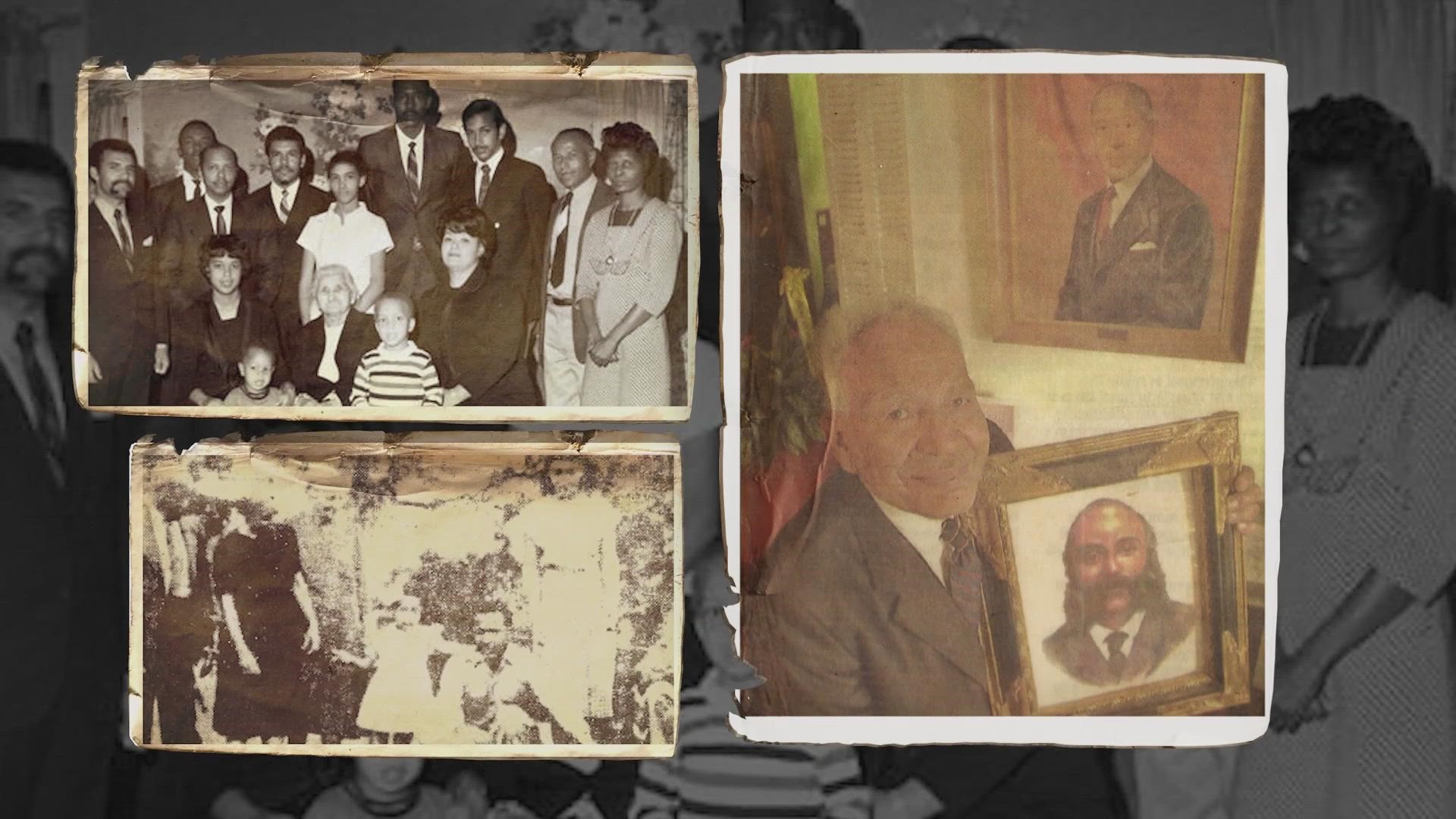SAN ANTONIO — Two parents, 15 children and several grandchildren have a prominent family legacy in the Alamo City.
The Sutton family settled in San Antonio’s east side and excelled in education, promoting the arts and breaking barriers. Its members became doctors and lawyers whose legacies overlap with those of the country’s famous African American leaders.
“We were fortunate to be who we were, but we had an obligation,” said Charles Andrews, a grandchild of Samuel J. and Lillian Sutton, while sitting in the den of his north-side home. His mother was Smithie Sutton, a longtime classroom teacher and active NAACP member.
Smithie and her 14 siblings, 12 of whom survived to adulthood, all earned bachelor’s degrees. The older children would teach their younger siblings.
It was their father, Samuel Sutton, who was the patriarch of the family. He moved from Virginia to Mexico before becoming an educator at Guadalupe College in Seguin, where he met Lillian. Samuel became the principal of San Antonio’s first Black high schools, including Frederick Douglass, Wheatley and Riverside.
Lillian was an educator too, but had a profound impact beyond the classroom.
“She’s a very powerful lady in her own right,” Andrews said.
Lillian would feed homeless from out the back door of their home on 430 North Cherry St., which still stands today. The residence also hosted sewing circles, a safe place for women to gather and exchange ideas.
“When people had problems with one of the leaders in the community, bankers, et cetera, they would on occasion come to the sewing circle, lay out their problems and the appropriate maid would take it and handle it,” Andrews said. “Education was stressed, (and) civil rights. We were all involved in a community struggle and activity, we were right in the middle of it, if not leading."
Alexander Sutton’s dad was Alexander Carver Sutton, and Sr. George Washington Carver was his godfather.
AC Sutton established the first Black toy store in San Antonio, having graduated from Tuskegee Institute after studying agriculture, and was a lifelong community activist in the NAACP.
The activism was shared with Smithie, who helped integrate the Camellia Room, a whites-only restaurant within the Joske’s Department Store in San Antonio.
Smithie and her friend Cathleen Voight, who Andrews admits didn’t "look" Black, went to the Camellia Room for lunch.
“My uncle GJ waited until they were seated and served and then he came and asked to be served and came to ask to join them. They told him ‘Mr. Sutton,’ and they knew who he was, ‘You know we don’t serve colored here in the Camellia Room.' And then he said, 'Yes you do,’” Andrews recalls.
“They go over and they ask my mother, ‘There’s a man who says he’s your brother?’ And my mother says, ‘Yeah that’s my brother GJ.’ You know what they did? They said, 'To hell with it.' That’s how the Camellia Room got integrated.”
It was one of the first major civil rights demonstrations in San Antonio. Charles’ sister, Mary Lillian Andrews, also wrote letters to the Woolworth asking for the restaurant to integrate its lunch counters.
One of the Suttons' biggest contributions to Black Alamo City history was lending a steady hand of ownership over the famous Apollo Theater.
“It became eventually our family business, in the sense that everyone invested in it,” Alexander Sutton said, recalling how his dad became a part of the Inner City Broadcasting Corporation.
His uncle Percy, who was Malcolm X’s attorney and a Tuskegee Airman, became a businessman.
“He told me he used to love going to the Apollo Theater when he was younger. And so when it closed, when he got financially capable, he bought the building,” Sutton said.
The family left its mark on the building in more ways than one. AC Sutton and Percy saw some black marble during a trip to Laredo. The two rented a truck and drove that black marble all the way to New York and installed it in the Apollo’s bathrooms.
The renovations of the theater paved the way for Showtime at the Apollo, also paving the way for legends such as Steve Harvey and Rev. Al Sharpton to get on the radio.
Anyone who was capable lent a hand in cleaning the theater before its big opening night.
“My assignment was cleaning those damn seats with a rag,” Andrews said as he laughed. He was one of the board members at the time it reopened.
Andrews went on to run a radio station in San Antonio out of a building at 217 Alamo Plaza, the same building in which his grandparents were married.
The Sutton’s grandchildren have their own forms of success.
“Charles had businesses, I’ve had businesses, we’ve all had an opportunity to create something for ourselves,” Alexander said.
The Sutton family helped establish a mattress factory, healthcare centers and the family funeral business, which still carries its name to this day. GJ Sutton was the first Black elected representative in the State of Texas, and the first Black member of the San Antonio Junior College Board.
Charles ran a radio station for several years before retiring.
“I’m 83 years old, it is expected of me to continue to contribute. (Alexander) is a kid under me, but he has the same obligation—as do all of us,” Andrews said.
The obligation to contribute is part of why he believes the family has experienced success.
“Part of what is left is a legacy that you’re not just responsible to yourself, but also to your family and your community,” Sutton said.

